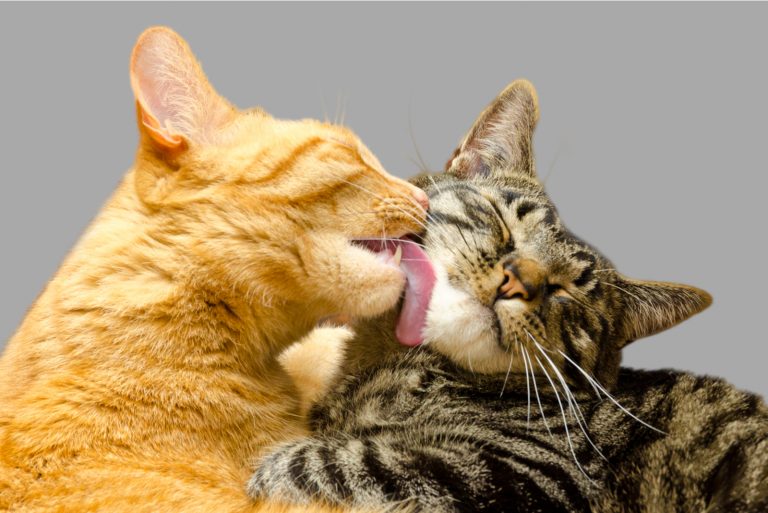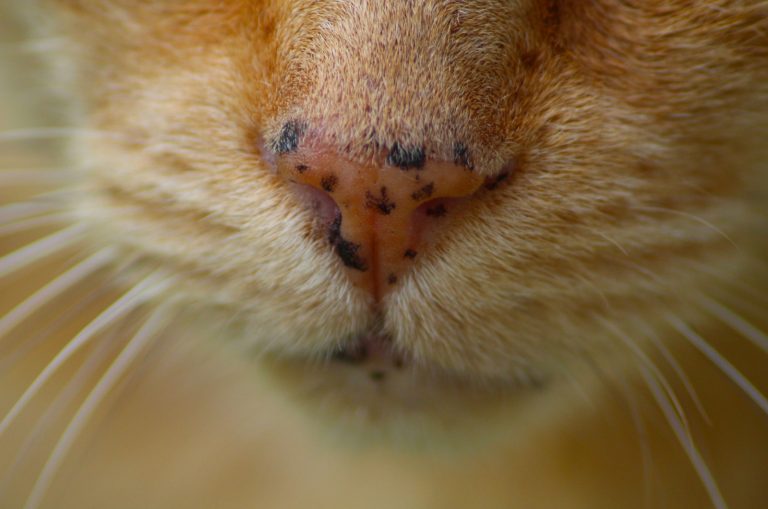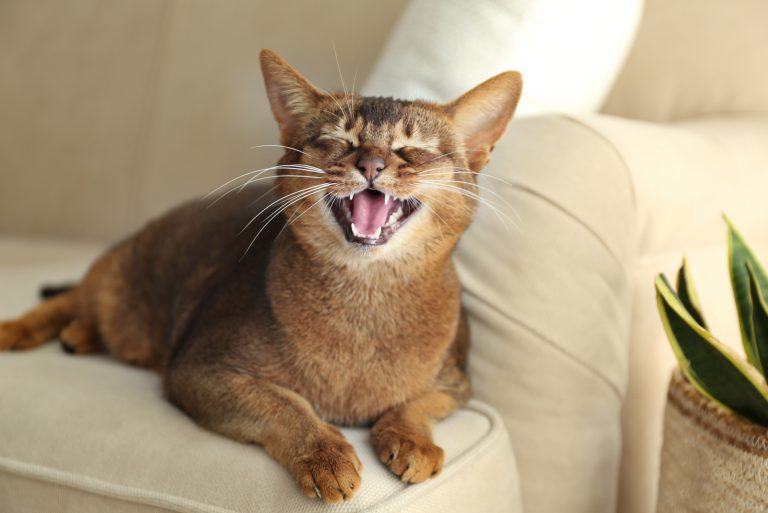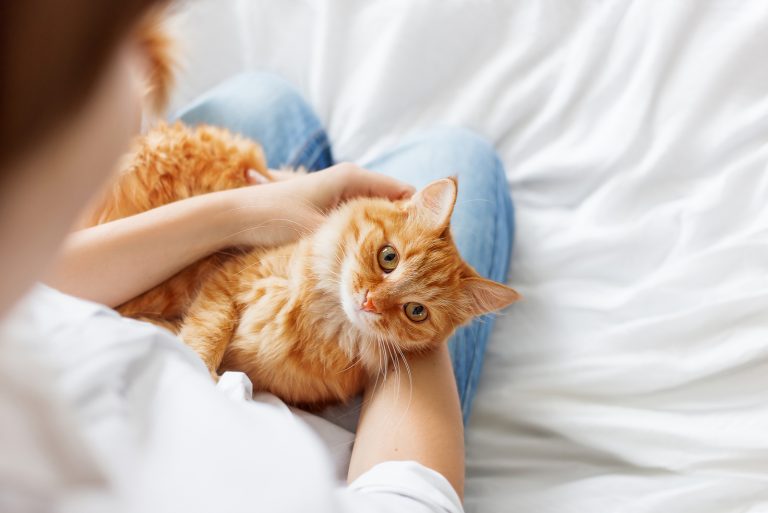My Cat Poops On Floor When Angry: 8 Ways To Stop It
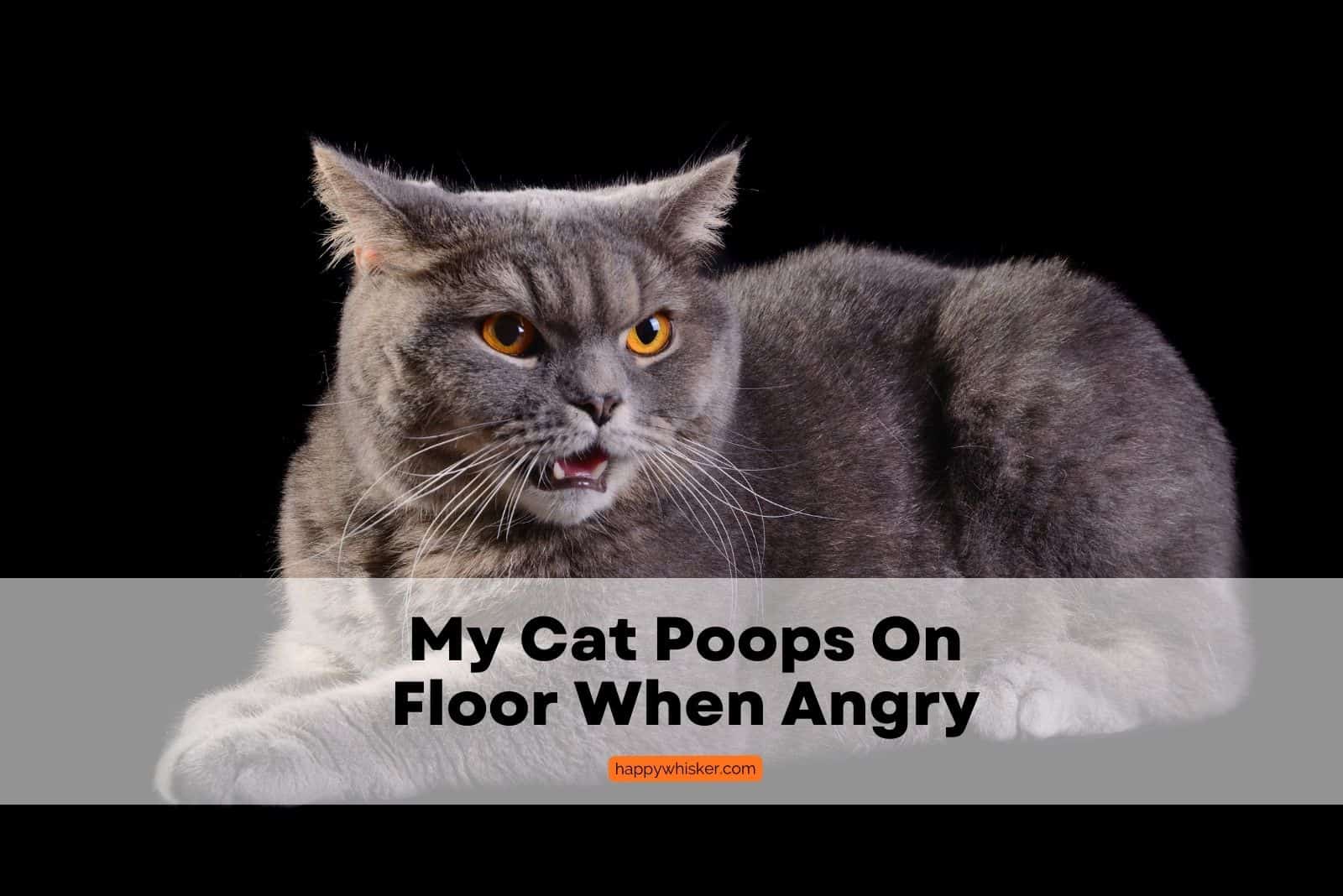
If you’re a cat owner, you know cats can be quite… enigmatic.
Among many odd behaviors, one behavior that many cat owners find particularly perplexing is when a cat poops on the floor when they are angry or upset.
There are a variety of reasons why cats might exhibit this behavior, and in this article, we’ll explore some of the possible causes, and ways to address the problem.
So, if you’re ready to say goodbye to the angry poop and hello to a cleaner home (and I’m sure you are), let’s get started!
When A Cat Poops On Floor When Angry
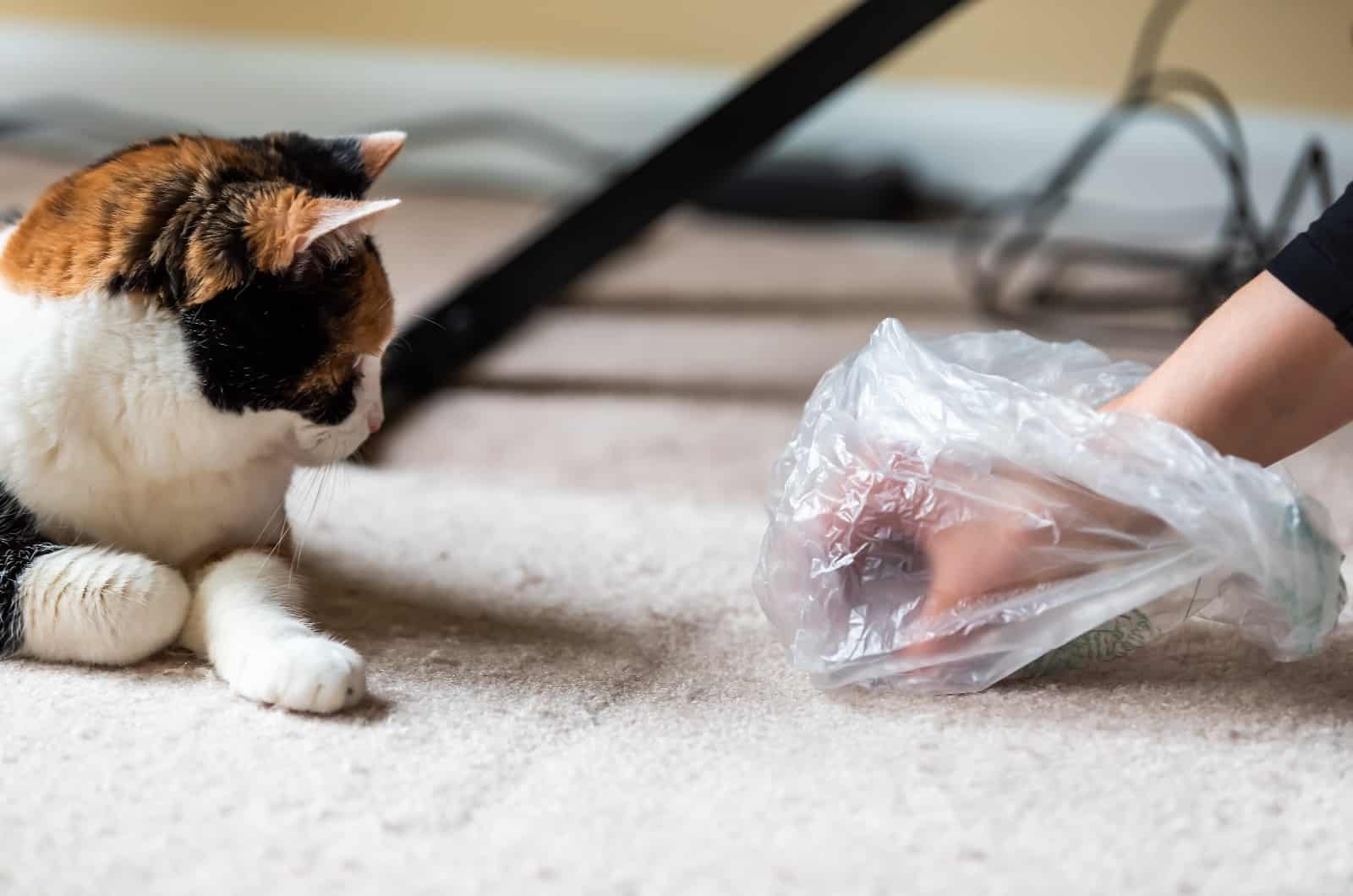
If you’re reading this, you probably have a cat who likes to express anger through the age-old tradition of pooping on the floor.
Don’t worry; you’re not alone. I fostered a cat once that did the same thing, and that kitty did it so often that we’ve called it “the angry poop”.
In this article, I will go over what might be causing this cat behavior, but first, let’s cover how to stop it – that might be why you’re here in the first place!
8 Ways To Stop Your Cat From Pooping On The Floor When Angry
1. Fix The “Litter Box Situation”
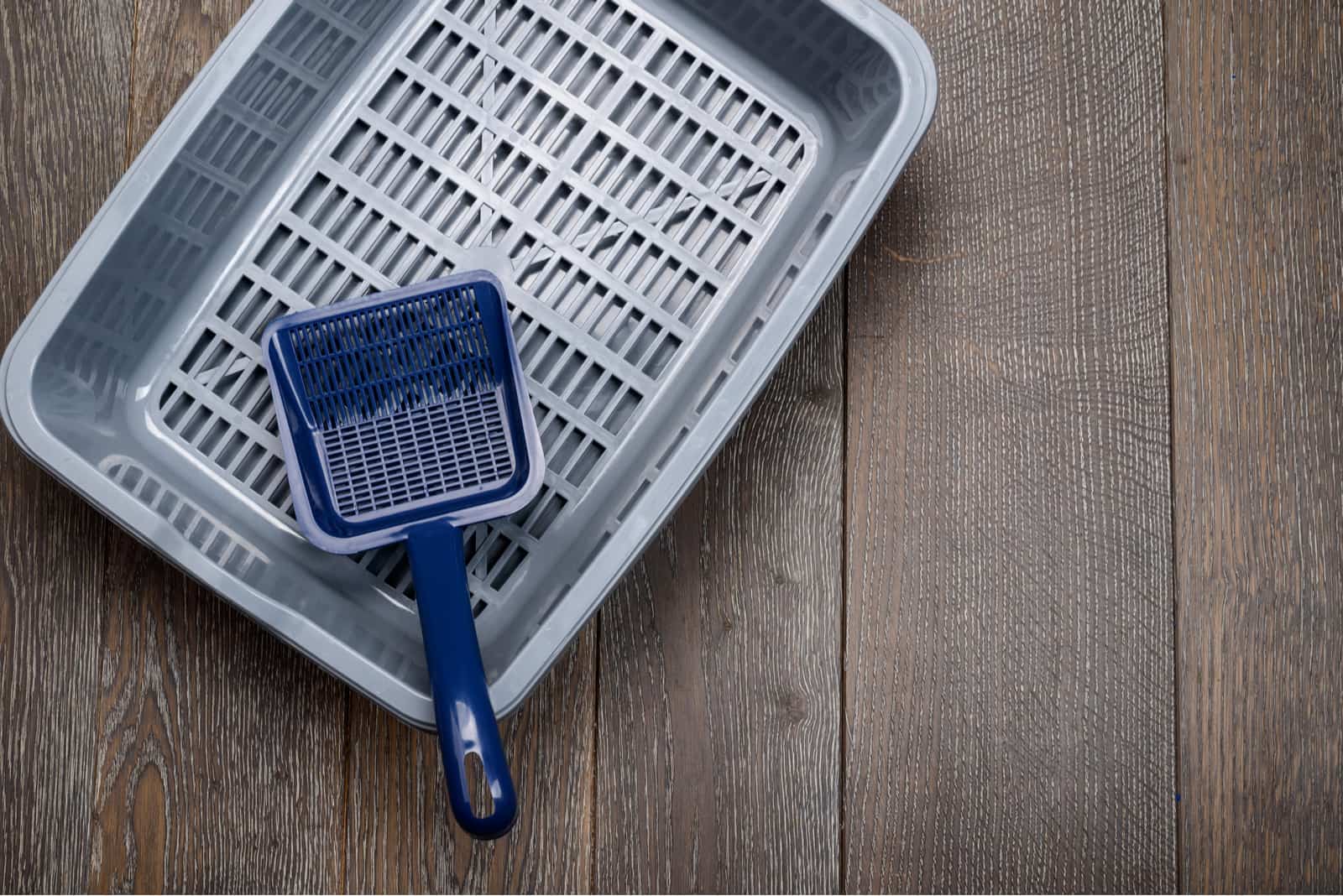
Litter box problems often cause cats to become angry, as many cat owners might have experienced!
So, to make your cat not angry, try finding out if litter box issues are what’s causing your cat to poop on the floor.
Here are my best tips on how to make your cat satisfied with its “litter box situation”.
• Keep Your Cat’s Litter Box Clean
Cats are fastidious creatures and often refuse to use a dirty litter box (for example, my cats absolutely refuse to use a dirty litter box!).
But the fix is easy: make sure to scoop at least once daily and completely clean the box weekly.
Having a clean litter box is the key!
• Try A Different Type Of Litter
Some cats prefer a certain type of litter, such as clay or crystals.
Experiment to see if your cat responds better to a different litter (for example, buy a clumping cat litter if you never have!).
• Place The Litter Box In A Convenient And Accessible Location
If your cat has trouble getting to its litter box, that might be causing your cat to be angry. The litter box should be placed in a convenient location your cat has absolutely no trouble getting to.
• Make Sure The Litter Box Is The Right Size For Your Cat
If the litter box is too small, your cat may feel cramped and be more likely to go elsewhere. Make sure the new litter box is big enough for your cat to comfortably turn around and do their business in.
This might be a potential issue for cat owners with large cats, such as Maine Coons, but there are extra-large litter boxes in the market (luckily!).
• Provide Plenty Of Litter Boxes
It’s good to have more litter boxes than cats in a household. This will give each cat plenty of options and reduce their chances of feeling like they have to “compete” for access to the box.
If you have two cats and one litter box, get a second box – that might solve your issue!
• Make Sure The Litter Box Is In A Quiet, Private Location
The location of the litter box is very important.
Cats prefer to do their business where they feel safe and secure. If the litter box is in a high-traffic area, your cat may feel anxious and look for a quieter spot.
It can also make the cat mad, and decide to poop on the floor as a form of protest!
Try placing your cat’s litter box in a different room, and see if that solves your issue.
• Consider Investing In A Covered Litter Box To Give Your Cat Some Privacy
If your cat is experiencing stress or anxiety, it may benefit from having a covered litter box.
A covered litter box can provide your cat with some privacy while they do their business, which can help them feel more comfortable and calm.
2. Address Any Medical Problems
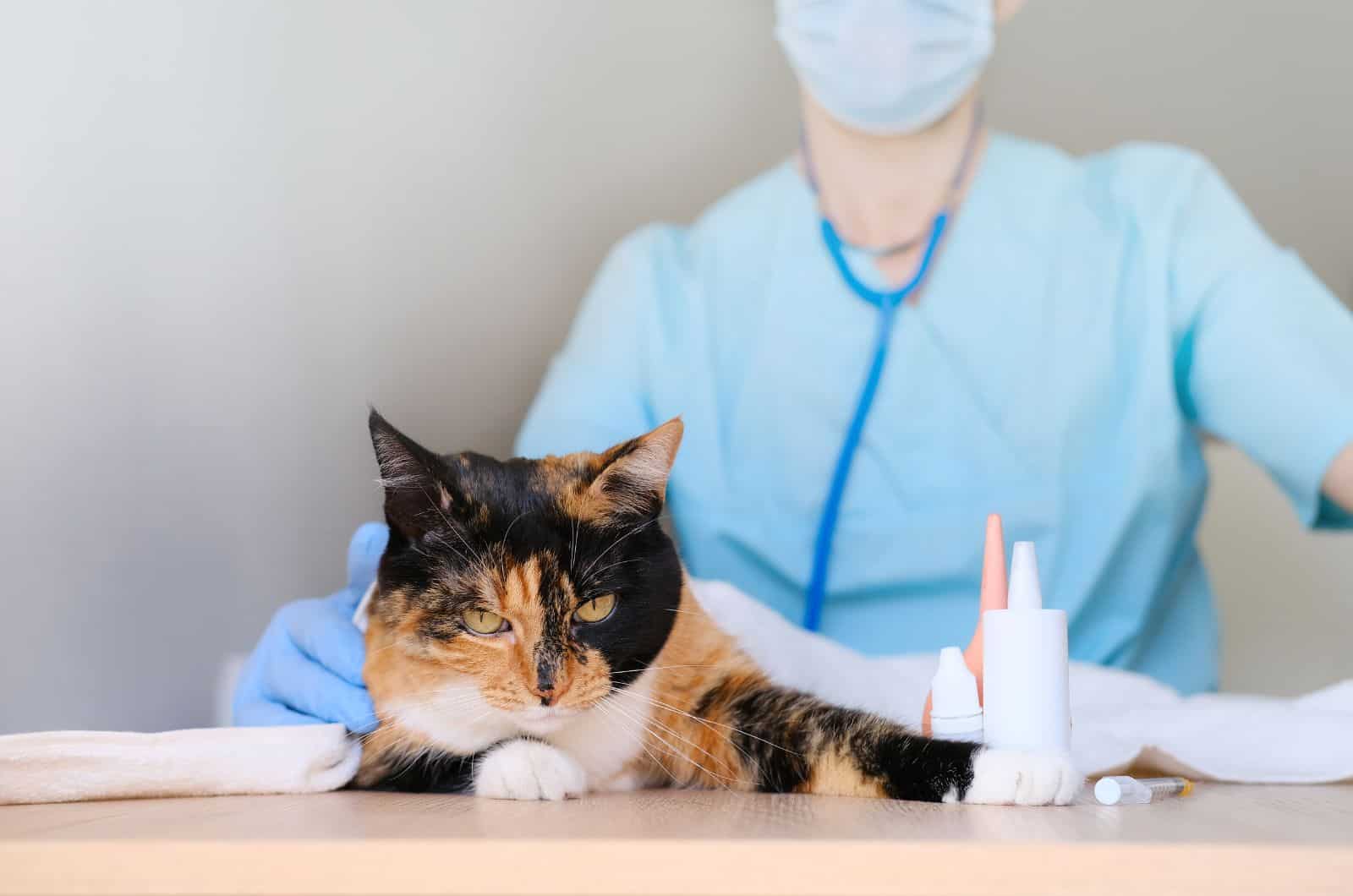
Cats are not prone to showing signs of illness directly, but may show it by exhibiting behavior problems such as pooping in inappropriate places, such as in the middle of your living room floor.
Different health issues can cause discomfort or pain while using the litter tray, leading cats to associate it with negative feelings and avoid using it, which results in the cat pooping on the floor, for example.
Medical issues such as a urinary tract infection (UTI), constipation, or digestive problems are common causes of cats not using their litter boxes.
Therefore, if you suspect your cat has an underlying health issue, please see a vet.
3. Address Any Behavioral Issues
If your cat is exhibiting inappropriate elimination behaviors, such as pooping on the floor, it is important to address any underlying behavioral issues.
Yes, apart from medical issues, behavioral issues can cause the cat to poop outside the litter box.
For example, pooping on the floor can be your cat’s way of saying: “I’m the boss here!”, or “This is my territory!”
If this is the case, I suggest you talk to a professional animal behaviorist. They can help you to identify the root cause of the behavior and develop a plan to address it.
It’s important to mention that older cats or indoor cats may be particularly prone to stress-related behavior problems, which is also something your animal behaviorist can help you deal with.
4. Try A Calming Product

Pet owners may notice changes in their cat’s behavior, such as defecation outside the litter box when experiencing stress.
This can occur when cats are in a new home, when there are changes to their routine or environment, or when they are confronted with new pets or people.
A calming diffuser releases calming pheromones into the air, which can help reduce anxiety and promote a sense of calm in cats.
Pet owners may notice a reduction in inappropriate elimination behaviors, such as the appearance of feces outside the litter box, when using a calming diffuser. I always recommend cat owners try this, and it’s worked for many (myself included)!
5. Use Deterrents
If your cat is pooping on the floor and you are looking for a quick and easy way to stop the behavior, you can try using deterrents.
Deterrents are substances or objects that can help discourage cats from engaging in certain behaviors. Some options for deterrents include double-sided tape, aluminum foil, or citrus-scented sprays.
These deterrents can help create an unpleasant or uncomfortable surface for your cat, making them less likely to return to the same spot to eliminate.
However, I must say I’m not the biggest fan of this option, as the cat is most likely to find another spot to poop on…
6. Spend More Time Playing With Your Cat
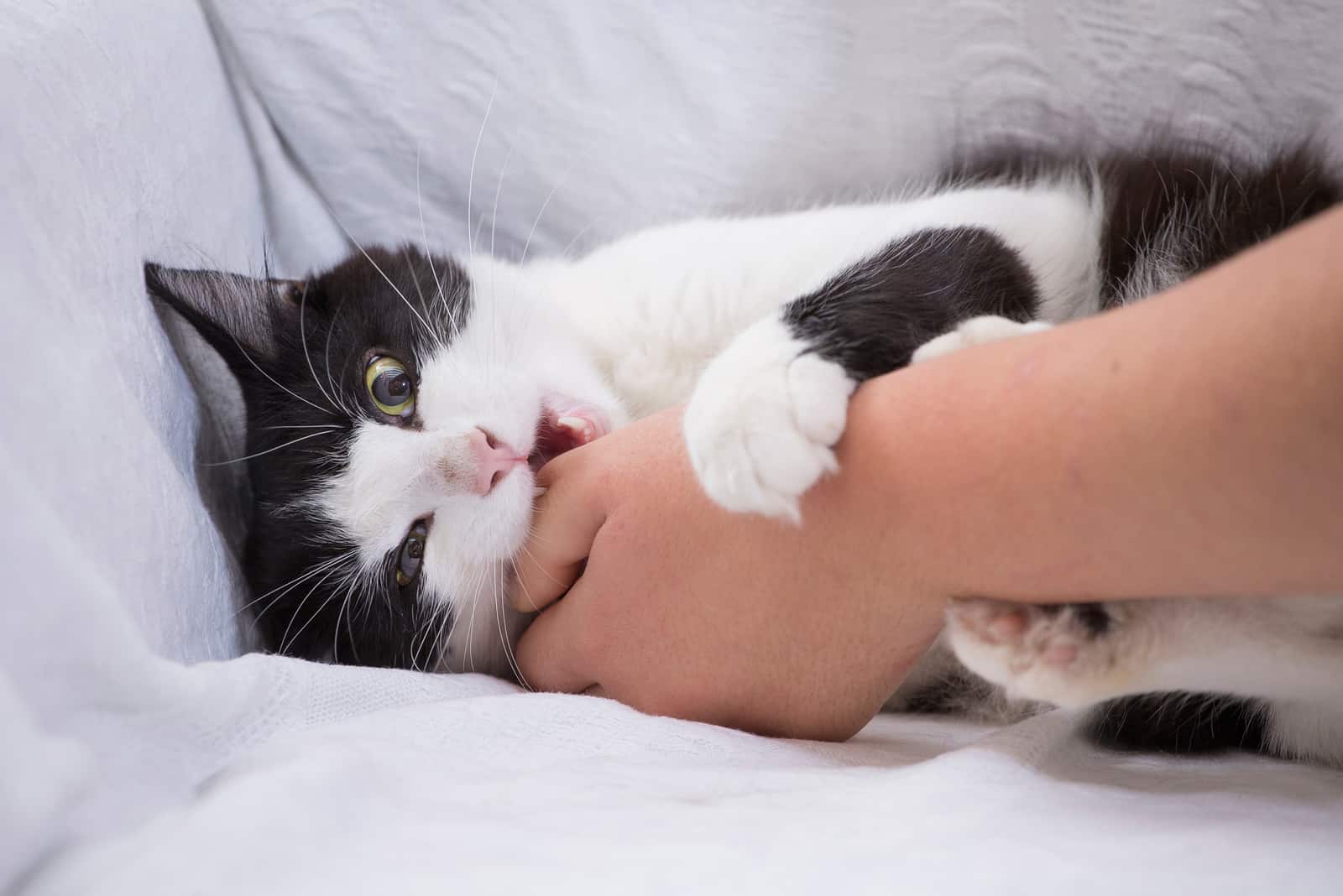
If your cat is pooping on the floor and you are looking for a way to stop the behavior, you can try to spend more time playing with your cat.
Cats that do not receive enough mental and physical stimulation may engage in inappropriate elimination behaviors (such as pooping outside the litter box).
They do so as a way to seek attention or express their frustration to their owners and other household members.
By providing your cat with plenty of opportunities to play and exercise, you can help keep them mentally and physically engaged and happy!
7. Reduce Stress In Your Home
Cats may engage in inappropriate elimination behaviors, such as pooping outside the litter box, when experiencing stress or anxiety.
Creating a calm and stress-free environment for your cat can help reduce the likelihood of these behaviors.
8. Consult A Certified Behaviorist If The Behavior Persists
Suppose you have ruled out any medical issues and your veterinarian has not been able to help address your cat’s behavior of pooping on the floor when angry. In that case, consulting with an animal behaviorist may be helpful.
Animal behaviorists have advanced training in understanding and modifying animal behavior.
They can help identify the root cause of the behavior and provide recommendations for addressing it.
Why Would A Cat Poop On The Floor When Angry?
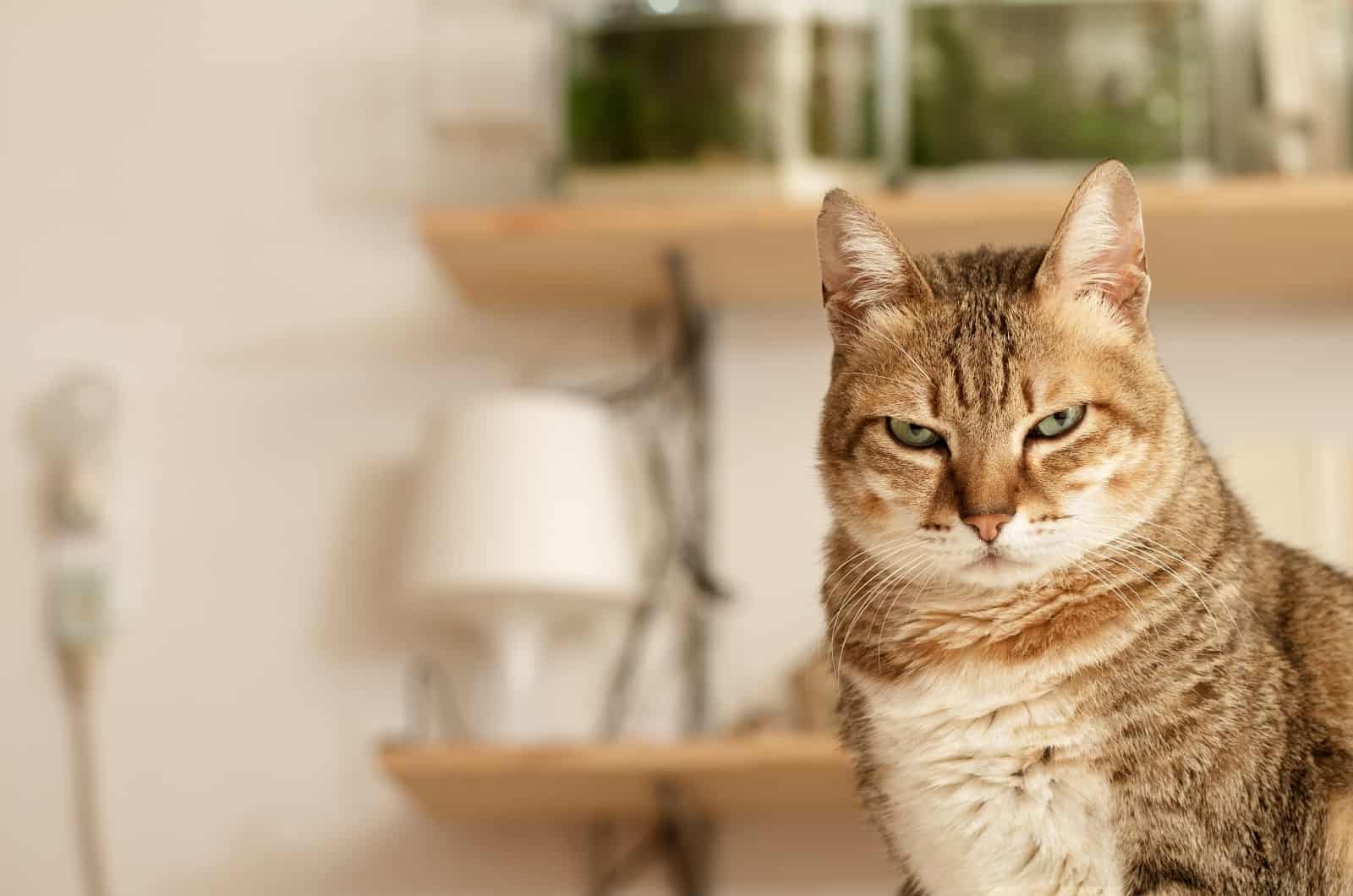
• Stress or anxiety
Cats can express their stress or anxiety by pooping on the floor. Common causes of stress in cats could include changes in the environment, a new pet or person in the home, or a recent move.
• Litter box aversion
If the litter box is not clean, cats may refuse to use it and choose to poop elsewhere.
• Medical issues
Certain medical conditions can cause cats to have difficulty with elimination, and they may poop on the floor instead of the litter box.
• Not enough litter boxes
If there are not enough litter boxes in the home for the number of cats, one cat may monopolize the litter box, and the other cats may resort to pooping on the floor.
• Territorial disputes
If a cat feels threatened by another cat in the home (or outdoor cats coming to your cat’s yard), it may express aggression by pooping on the floor.
• Age-related problems
Senior cats may have difficulty making it to the litter box in time and so may choose to poop on the floor instead.
• Attention-seeking behavior
In some cases, cats may engage in inappropriate elimination behaviors to seek attention or attempt to communicate their needs.
How To Get To The Bottom Of What’s Making My Cat Angry?
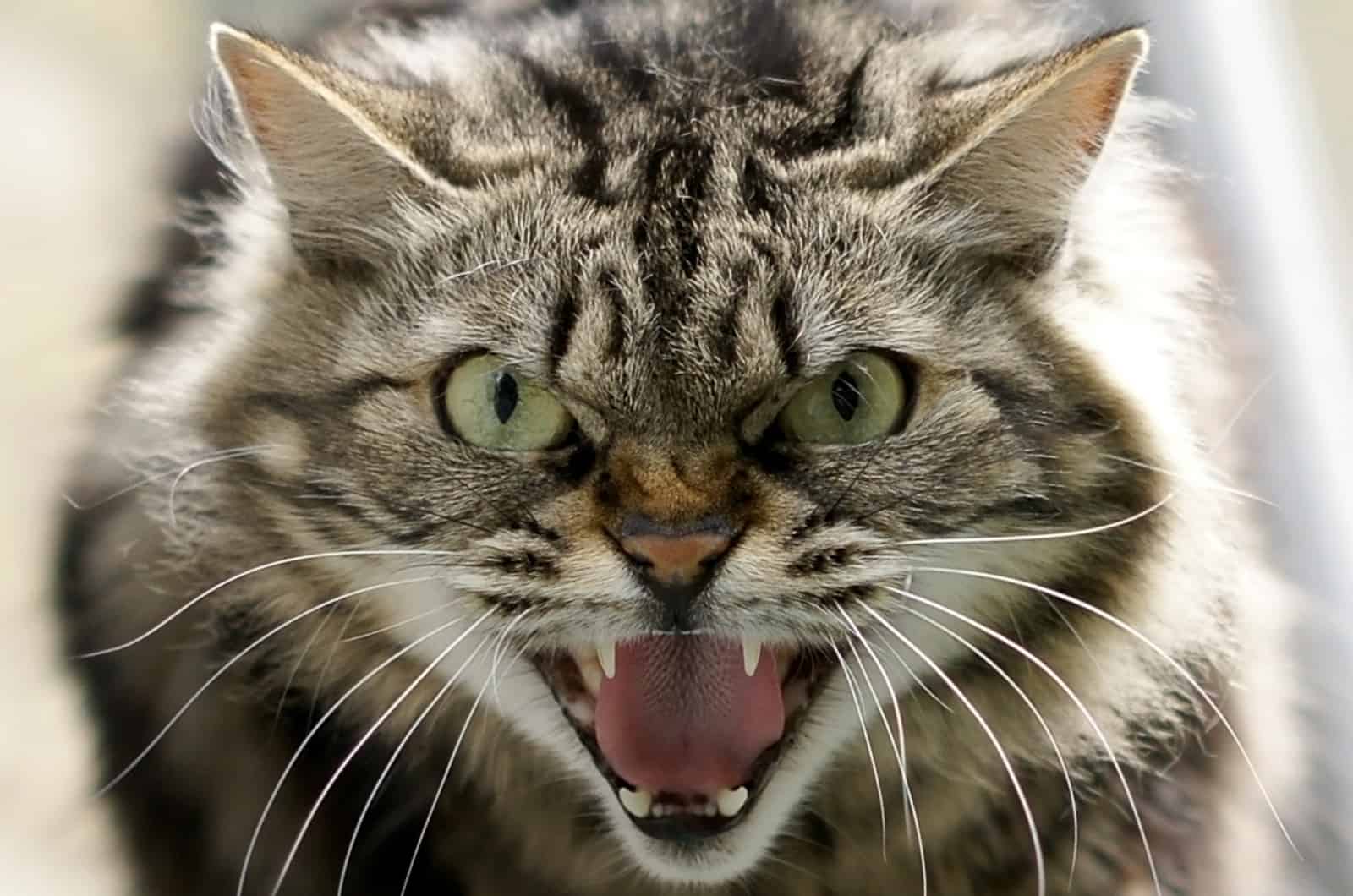
There are a few steps you can take to try to get to the bottom of what’s making your cat angry:
• Observe your cat’s behavior
Pay attention to your cat’s body language and behavior when they become angry.
Does a specific person or thing trigger your cat’s anger? Or does your cat become angry when hungry, tired, or needing attention?
By observing your cat’s behavior, you may be able to identify patterns or triggers that can help you understand what’s causing their anger.
• Consider environmental factors
Is there something in your cat’s environment that may be causing them stress or discomfort?
This could include changes to their routine, the presence of new cats or people, or changes to their surroundings.
• Consult with a veterinarian
It is always a good idea to consult with a veterinarian if your cat is exhibiting a behavior change, as there could be an underlying medical issue causing their anger.
• Seek help from an animal behaviorist
Suppose you have ruled out medical issues and environmental factors and are still unable to determine what’s causing your cat’s anger and why your cat keeps pooping on the floor when angry.
In that case, an animal behaviorist can help you identify the root cause and provide recommendations for improving your cat’s potty behavior.
Should I Take My Cat To The Vet?
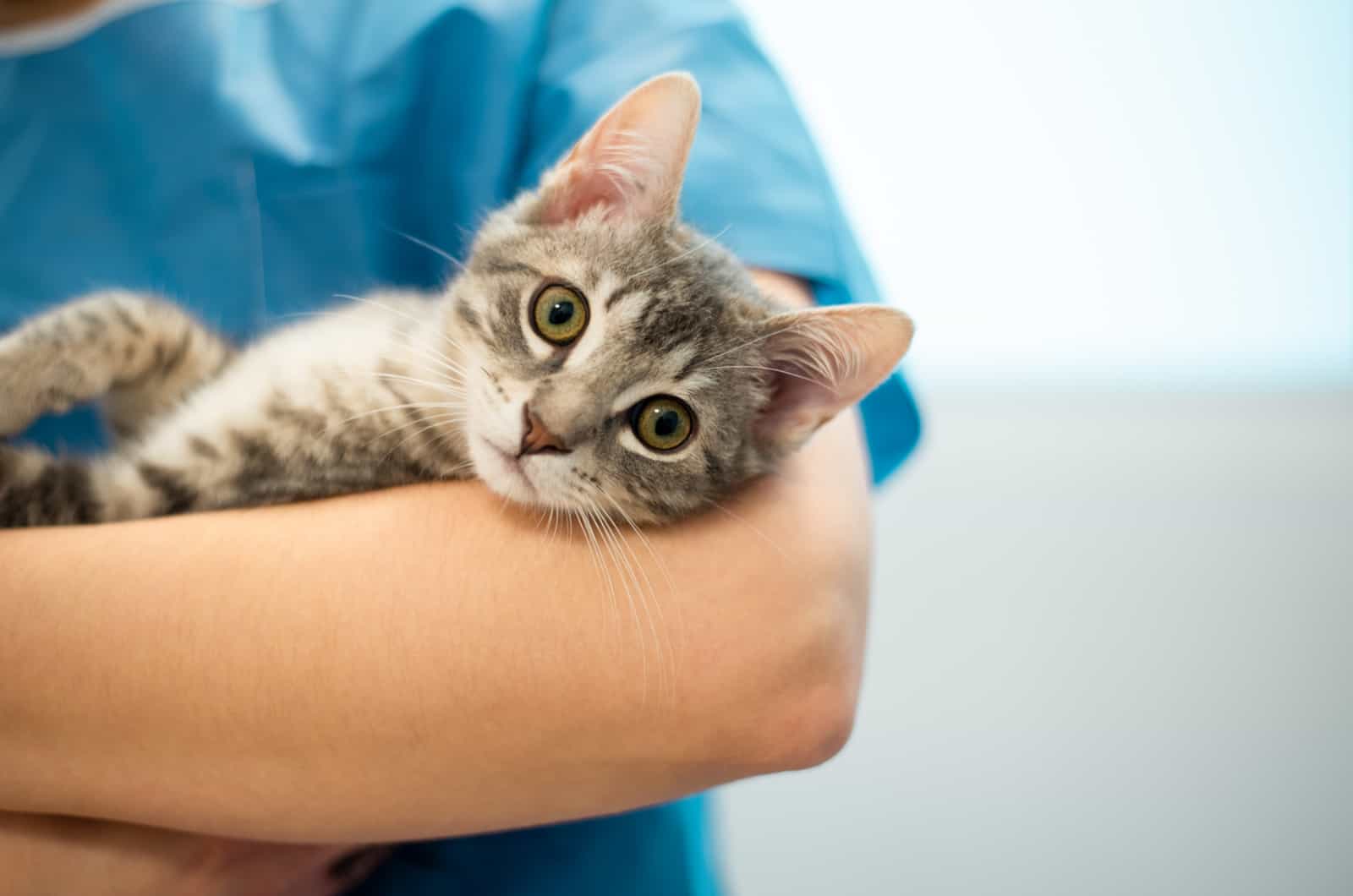
If your cat is exhibiting a change in behavior, such as pooping on the floor when angry, it is always a good idea to go for a vet check-up.
There could be a medical issue or an underlying health problem causing the behavior, and it is important to rule out any potential health concerns.
In addition, your veterinarian can provide recommendations and guidance on how to address the behavior and help you find a solution.
Final Thoughts

Well, there you have it! If your cat has taken to pooping on the floor when they’re angry, there could be several reasons behind this behavior.
From medical issues to stress or disliking the litter, it’s important to identify the root cause and work to find a solution!
And let’s be real, who doesn’t love a clean and poop-free home? So let’s work together to keep the peace, and keep the poop where it belongs – in the litter box.
Remember, being patient and consistent in stopping your cat from pooping on the floor is important! It may take some trial and error to find the solution that works best for your feline friend.
Related Articles:
• Why Is My Cat Pooping On Floor Randomly? Reasons & Solutions


